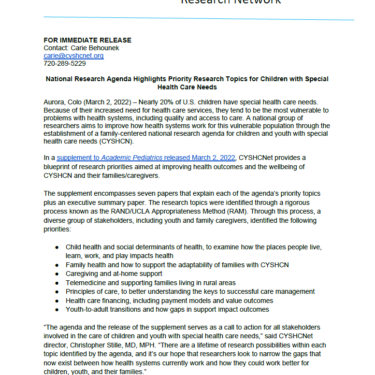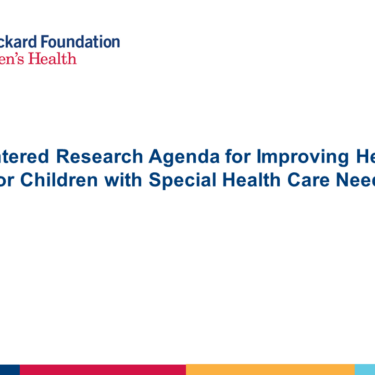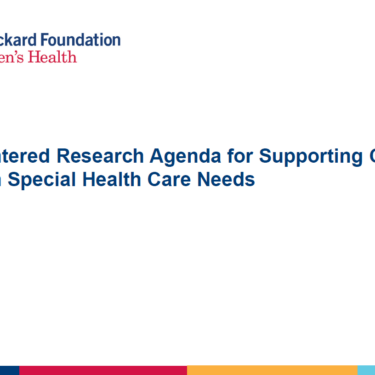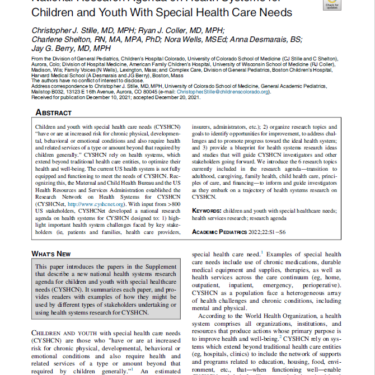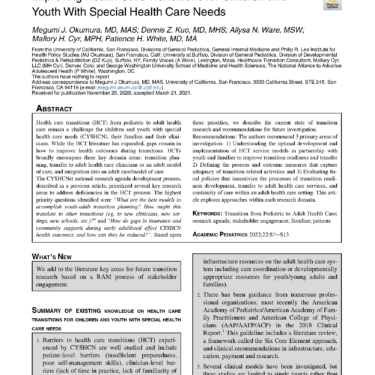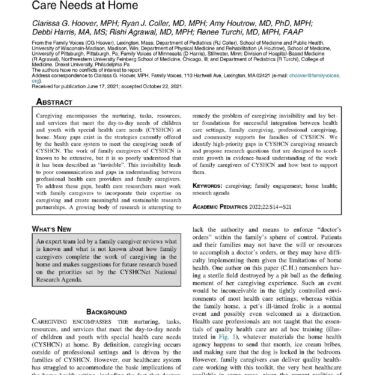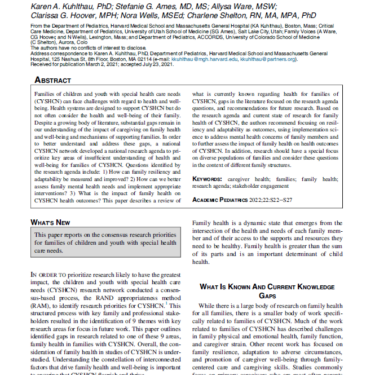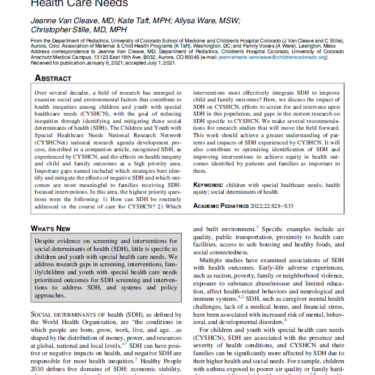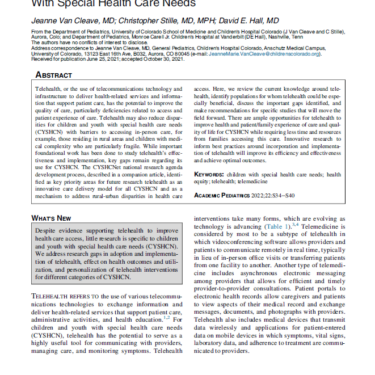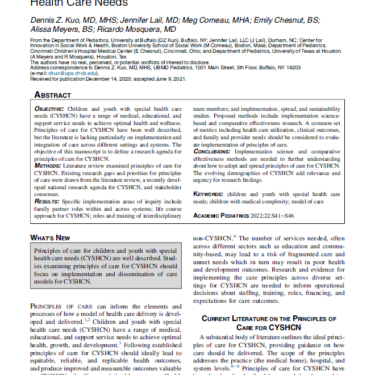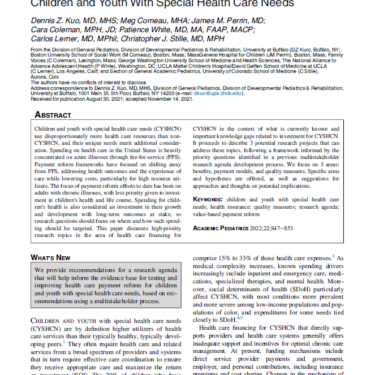A national group of researchers and family leaders aim to improve the system of care for children and youth with special health care needs (CYSHCN) through the establishment of a family-centered national research agenda. This supplement to Academic Pediatrics provides a blueprint of research priorities that address health outcomes and the well-being of CYSHCN.
In this webinar, authors discuss their article titled Improving Health Care Transitions for Children and Youth with Special Health Care Needs. Speakers highlight the health care transition process for adolescents and young adults with special health care needs, describe study findings, and reflect on the implications of their recommendations.
Researchers and family leaders from across the country partnered to develop a national research agenda focused on improving the health care system for children and youth with special health care needs. This webinar focuses on research priorities in caregiving for children with special health care needs.
This executive summary introduces the National Research Agenda on Health Systems for Children and Youth With Special Health Care Needs, a supplement to Academic Pediatrics. Authors identify six research priorities aimed at improving health outcomes and well-being for children and youth with special health needs and their families: transition to adulthood, caregiving, family health, child health care, principles of care, and financing.
Health care transitions from pediatric to adult health care remain a challenge for children and youth with special health care needs, their families, and their clinicians. While literature on this topic has expanded, gaps remain in how to improve health outcomes during transitions. This article describes the current state of transition research and recommendations for future investigation.
Researchers worked with family caregivers to incorporate their expertise on caregiving and lay a better foundation for successful integration between health care settings, family caregiving, and community supports for families of children and youth with special health care needs (CYSHCN). This article identifies high-priority gaps in CYSHCN caregiving research and proposes research questions that could increase the evidence-base for understanding of the work of family caregivers and how best to support them.
Health systems are designed to support children and youth with special health care needs (CYSHCN) but do not often consider the health and well-being of their family. Despite a growing body of literature, substantial gaps remain in understanding the impact of caregiving on family health and well-being and the provision of support for families. This article describes the current state of research on the health of families of CYSHCN and provides recommendations for future investigation.
Social and environmental factors contribute to health inequities among children and youth with special health care needs (CYSHCN). While still an emerging field of research, authors stress the need for greater understanding of the patterns and impacts of social determinants of health as experienced by CYSHCN.
Telehealth has the potential to improve quality of care, particularly deficiencies related to access and patient experience of care. Telehealth may also reduce disparities for children and youth with special health care needs (CYSHCN) by alleviating barriers to accessing in-person care, for example, making it easier to access care for those residing in rural areas and children with medical complexity who are particularly fragile. Authors review the current knowledge around telehealth, identify populations for whom telehealth could be especially beneficial, discuss the important gaps identified, and make recommendations for specific studies that will help move the field forward.
Children and youth with special health care needs (CYSHCN) have a range of medical, educational, and support service needs to achieve optimal health and wellness. Principles of care for CYSHCN have been well described, but the literature is lacking particularly on implementation and integration of care across different settings and systems. The authors identify four primary areas of investigation that could further understanding of how to adopt and spread principles of care for CYSHCN.
Children and youth with special health care needs (CYSHCN) are high utilizers of health care resources and their unique needs merit targeted consideration. The focus of payment reform efforts to date has been on adults with chronic illnesses, with less priority given to investment in children's health and the life course. Spending for children's health is an investment in their growth and development with long-term outcomes at stake. This paper discusses high-priority research topics in the area of health care financing for CYSHCN including what is currently known and important knowledge gaps.
